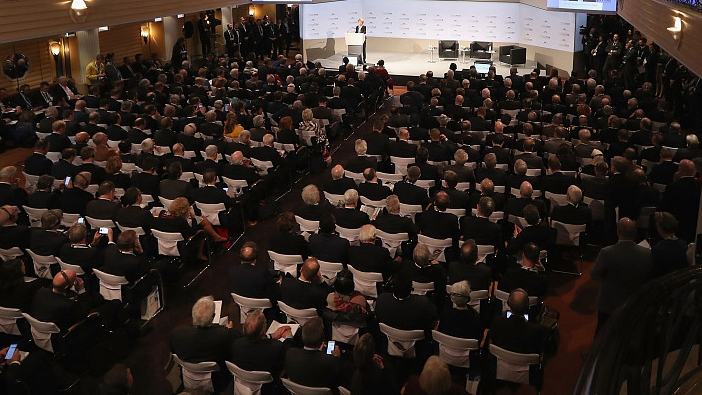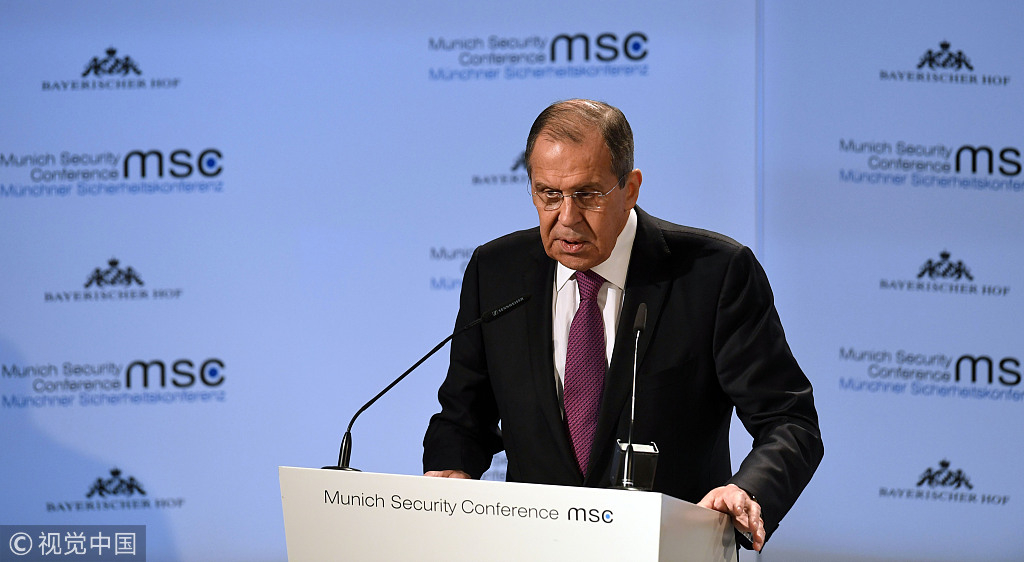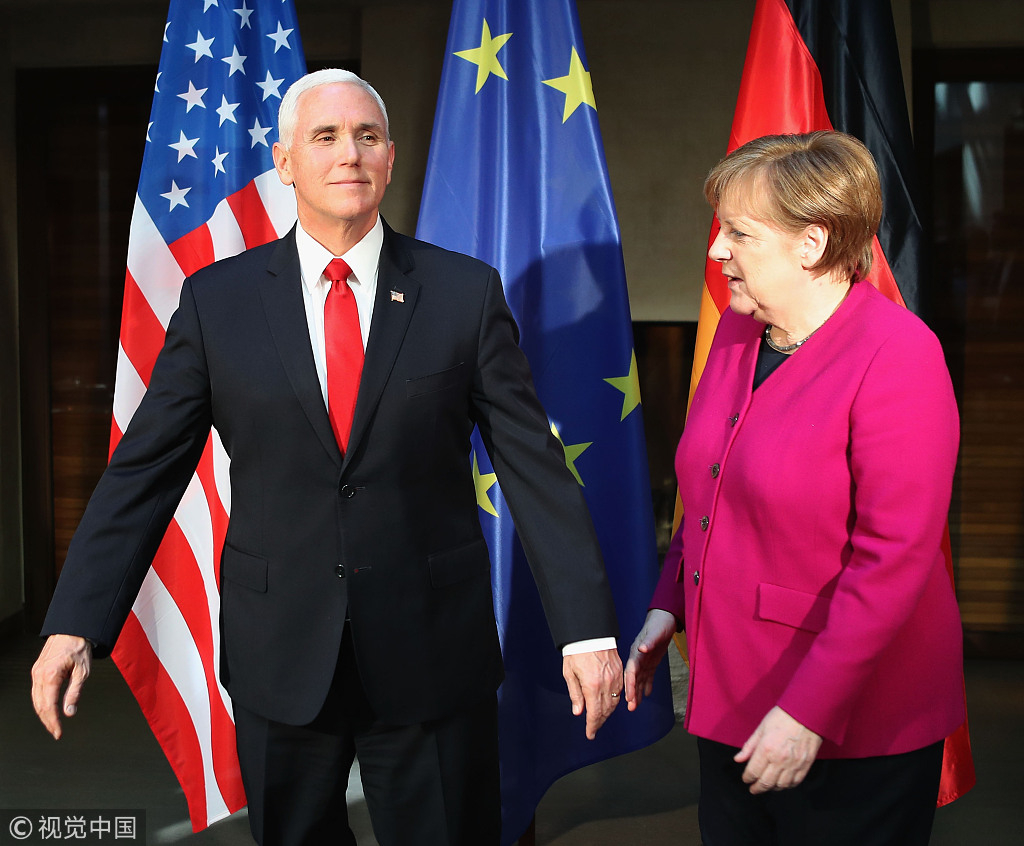
World
13:00, 17-Feb-2019
Munich Security Conference concludes with confrontations and challenges
Updated
14:54, 17-Feb-2019
CGTN
02:25

The 55th Munich Security Conference (MSC) in Germany closed on Sunday after two days of meetings focused on the global order and global security issues.
However the talks, confrontations, and hidden disagreements have not ended with the end of the meetings. China, Russia, Germany and the U.S. voices at the MSC reveal challenges and risks the world is facing today.
Return to INF Treaty?
China reiterated that it hoped the United States and Russia will return to the Intermediate-Range Nuclear Forces (INF) Treaty, said Yang Jiechi, a member of the Political Bureau of the Communist Party of China (CPC) Central Committee and also director of the Office of the Foreign Affairs Commission of the CPC Central Committee.
He made the remarks after delivering a keynote speech at the 55th Munich Security Conference (MSC), saying that China firmly advocates maintaining global strategic stability.
The U.S.' decision to withdraw from the treaty will have serious consequences for the international community, said Yang.

Russian Foreign Minister Sergei Lavrov speaks during the 55th Munich Security Conference in Munich, southern Germany, on February 16, 2019. /VCG Photo
Russian Foreign Minister Sergei Lavrov speaks during the 55th Munich Security Conference in Munich, southern Germany, on February 16, 2019. /VCG Photo
Moscow also said it was ready to negotiate the extension of the New START (Strategic Arms Reduction Treaty), which expires in two years, Russian Foreign Minister Sergey Lavrov said in the meeting.
"President Putin has repeatedly said that we are ready to launch the talks on an extension of the New START. It only expires in 2021, though time flies fast, and we have suggested to the U.S. that such discussions be launched, considering the necessity to clear up certain issues that we are worried about," he said.
Issues of disagreement
Lavrov emphasized that regional stability cannot be achieved if parties exclude Russia and force their own will, noting that Russia's participation is key to maintain stability in some tense regions. He added that some initiatives to resolve the security crisis were "NATO-oriented."
He said that the standoff between Europe and Russia is "senseless," saying that Europe has suffered huge losses from the sanctions against Russia.

German Chancellor Angela Merkel (R) and U.S. Vice President Michael Pence are pictured during a photo call ahead of bilateral talks during the 55th Munich Security Conference (MSC) in Munich, Germany, February 16, 2019. /VCG Photo
German Chancellor Angela Merkel (R) and U.S. Vice President Michael Pence are pictured during a photo call ahead of bilateral talks during the 55th Munich Security Conference (MSC) in Munich, Germany, February 16, 2019. /VCG Photo
Russia is interested in a strong, independent and open EU "no matter what numerous speculations might say," Lavrov said.
German Chancellor Angela Merkel also echoed the role of Russia in the meeting as saying "If during the Cold War ... we imported large amounts of Russian gas, I don't know why times should be so much worse today that we can say: Russia remains a partner."
"Geostrategically, Europe can't have an interest in cutting off all relations with Russia," Merkel said.
Unsurprisingly, U.S. Vice President Mike Pence called on NATO members to stay committed and strong to fend off alleged Russian threat earlier in the meeting. He also criticized a new natural gas pipeline from Russia to Germany.
Pence criticized European powers over their stances on Iran and Venezuela.
"The time has come for our European partners to withdraw from the disastrous Iran nuclear deal and join with us as we bring the economic and diplomatic pressure," he vowed like what he did in Poland on Thursday, accusing Britain, France and Germany of breaking American sanctions on Iran.
"I see the Europeans on one side and the Americans on the other side," Merkel told the conference.
"But is it helpful for our common goal to see to it that this negative impact that Iran has is contained by canceling the only agreement?" she asked. "Or can we use this as a smaller lever to put pressure on other issues?" she questioned.
Read more:
The U.S. reimposed economic sanctions last year after pulling out of the landmark 2015 Iran accord with world powers aimed at preventing Iran from developing a nuclear weapon.
The European Union is trying to keep the nuclear deal alive, however, and has developed a mechanism to open a channel to continue trade with Iran.
(With inputs from agencies)

SITEMAP
Copyright © 2018 CGTN. Beijing ICP prepared NO.16065310-3
Copyright © 2018 CGTN. Beijing ICP prepared NO.16065310-3